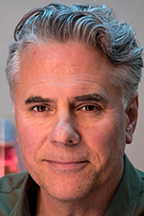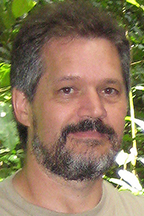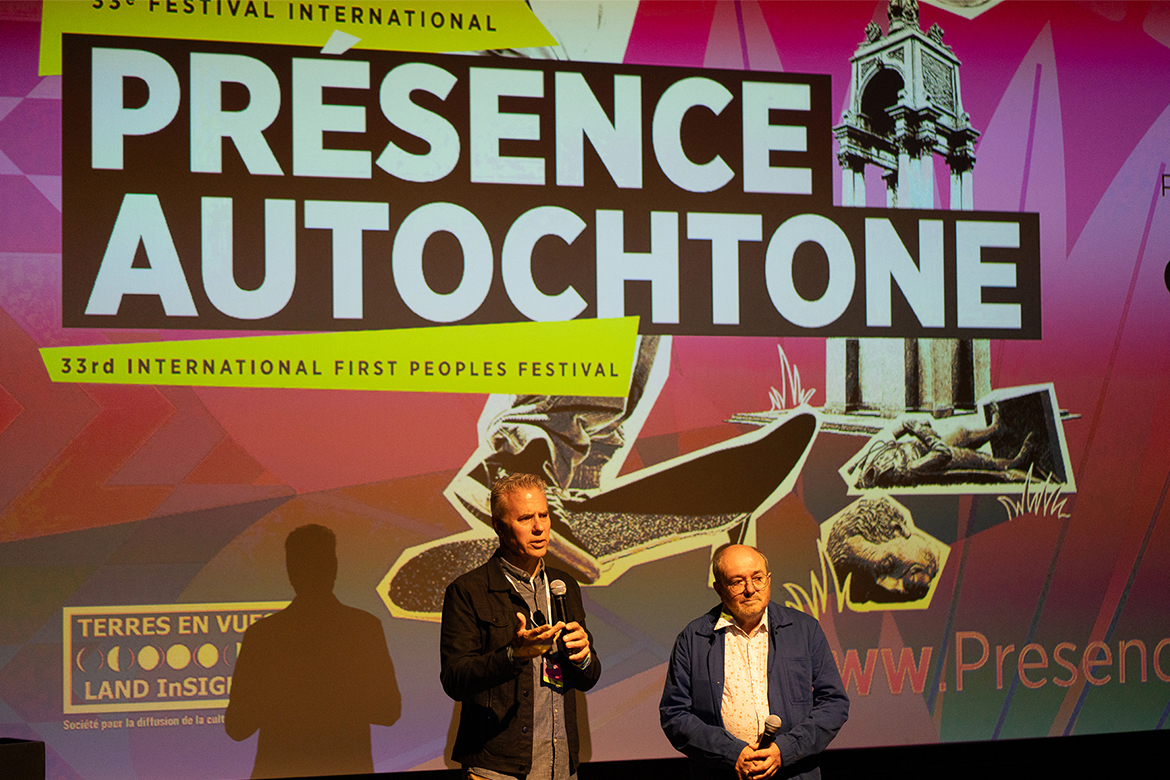Paul Chilsen, associate professor in the Department of Media Arts at Middle Tennessee State University, brought home a “Best International Short Film” at the recent International First Peoples Festival in Montreal for a cinematic retelling of a legend originating in the Brazilian rainforest.

“Nhakpoti,” which translates as “Star Girl” in English, is a short narrative film depicting the story of how agriculture was brought to the Indigenous Kayapó people, who live along the Xingu River in northwest Brazil amid more than 27 million acres of rainforest.
The Kayapó have been working with anthropologists for decades documenting traditional ceremonies; often these lasted for hours. But Chilsen said they were interested in making films that had broader global appeal. Beginning in 2018, he worked alongside villagers of A’Ukre to produce and co-direct “Nhakpoti” with Indigenous filmmaker Pat-i and other filmmakers Chilsen had trained in the village.
“When I started working with the Kayapó in 2017, I encouraged them to consider making films that tell stories,” Chilsen explained, though quick to applaud the villagers’ skills. “They already knew how to make films. What I did was train them in the process of making fictionalized narrative films.”

“Nhakpoti” materialized through a partnership between professor Richard Pace of MTSU’s Department of Sociology and Anthropology and Purdue University professor Laura Zanotti, who later garnered a National Geographic Society grant for $70,000 to help with projects like this to preserve and protect native culture of the Amazon and its beloved rainforest.
“The real value of working with subaltern and Indigenous peoples is to provide skills for cultural expression, cross-cultural communication and building of cultural identity,” Pace said. “These skills are essential in the struggle for cultural survival of vulnerable groups.”
The story of the Star Girl was a way to bridge the gap between preservation of tribal traditions and the modern-day communication: the ever-present screen.
“We have to tell this story with a broad brush … so that an audience is going to watch it,” Chilsen explained.

Learning ‘off the charts’
The 15-minute film opens with a tribal elder telling his grandson the legend of Star Girl, who brought agriculture to their people. As a group of young men lie beneath the night sky, one claims a particularly bright star will become his wife.
The star descends from the sky and transforms into a young woman, who eventually becomes his wife. As the village gathers for a post-wedding meal, the Star Girl is less than impressed by their bounty of mushrooms and twigs. She tells her husband she will return home and bring better food. So the young man uses a pliable wang-ynh tree to catapult his bride back to the Heavens.
“When she redescends, she’s brought with her all the modern components of agriculture,” Chilsen explained. “She brings them food they can eat, but she also brings plantings and teaches them how to plant and take care of the rainforest.”
On-site filming lasted nine days, with a host of MTSU students assisting in the project alongside Indigenous villagers — a huge part of the film’s success.
“Our students can learn and be involved, and learning is off the charts and impacts their lives, too,” Chilsen said. “We used their cultural knowledge and our technology and found a blend that was a truly collaborative exchange.”

While there in A’Ukre, Chilsen did a quick edit of footage, and the rest was done “working across the miles.” Then the pandemic brought production of the project to a screeching halt.
After several attempts, Chilsen was finally able to return in 2022 to shoot additional footage. He also spent time editing and translating the Kayapó language into subtitles for English and Portuguese, the primary language spoken in Brazil.
The importance of making “Nhakpoti” goes beyond the students and the screen, Chilsen said because “now the Kayapó can do it on their own.”
“My filmmaking career has been about helping people who traditionally don’t have access to these kinds of technologies and processes and give them a voice,” Chilsen said. “If we affirm their voices and their lifeways in this fashion, it can change the game.”
“Nhakpoti” continues to garner attention with an upcoming spot in the International Ethnographic Film Festival of Pará, held in October in Belém, Brazil. The film will also be an official selection of the Smithsonian’s Mother Tongue Festival held in Washington, D.C., on Feb. 24, 2024.
— Nancy DeGennaro (Nancy.DeGennaro@mtsu.edu)



COMMENTS ARE OFF THIS POST